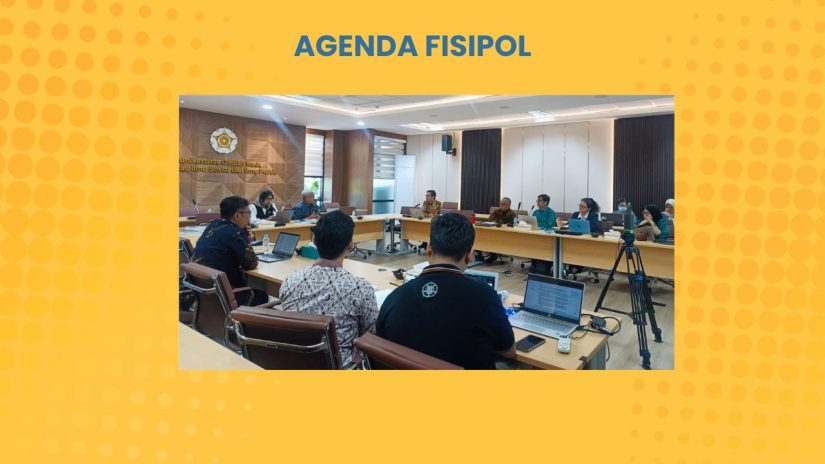
The Master’s Program in International Relations, Faculty of Social and Political Sciences (FISIPOL), Universitas Gadjah Mada, underwent an on-site accreditation assessment conducted by the Independent Accreditation Board for Social, Political, Administrative, and Communication Sciences (LAMSPAK) on Friday, July 25. The event took place at the Faculty Senate Meeting Room of FISIPOL UGM as part of the higher education quality evaluation process.
The assessment team from LAMSPAK consisted of two distinguished experts, Dr. Suyani Indriastuti and Dr. Dudy Heriyadi, who carried out a comprehensive evaluation of various aspects of the Master’s Program in International Relations. Their assessment covered curriculum design, teaching and learning processes, program governance, as well as the program’s outputs and broader impacts on both society and the academic community.
This assessment is an integral part of the accreditation process, which aims to ensure the quality of higher education in an independent, transparent, and professional manner. Through this external evaluation by an independent accreditation body, the program is expected to continuously improve and adapt to global developments and demands in the field of international relations.
During the assessment, the evaluators reviewed supporting documents, engaged in dialogue with faculty leadership, program directors, lecturers, students, and administrative staff to gain a holistic understanding of how the tri dharma of higher education—teaching, research, and community service—is implemented in the program.
By undergoing this accreditation process, FISIPOL UGM reaffirms its commitment to upholding and enhancing the standards of higher education quality, strengthening its position as an academic institution that is excellent, ethical, and globally competitive.
This initiative also aligns with the United Nations Sustainable Development Goals (SDGs), particularly SDG 4 (Quality Education), which promotes inclusive and equitable access to quality education and lifelong learning, and SDG 16 (Peace, Justice, and Strong Institutions), as the program contributes to building knowledge and skills in governance, diplomacy, and international cooperation.
